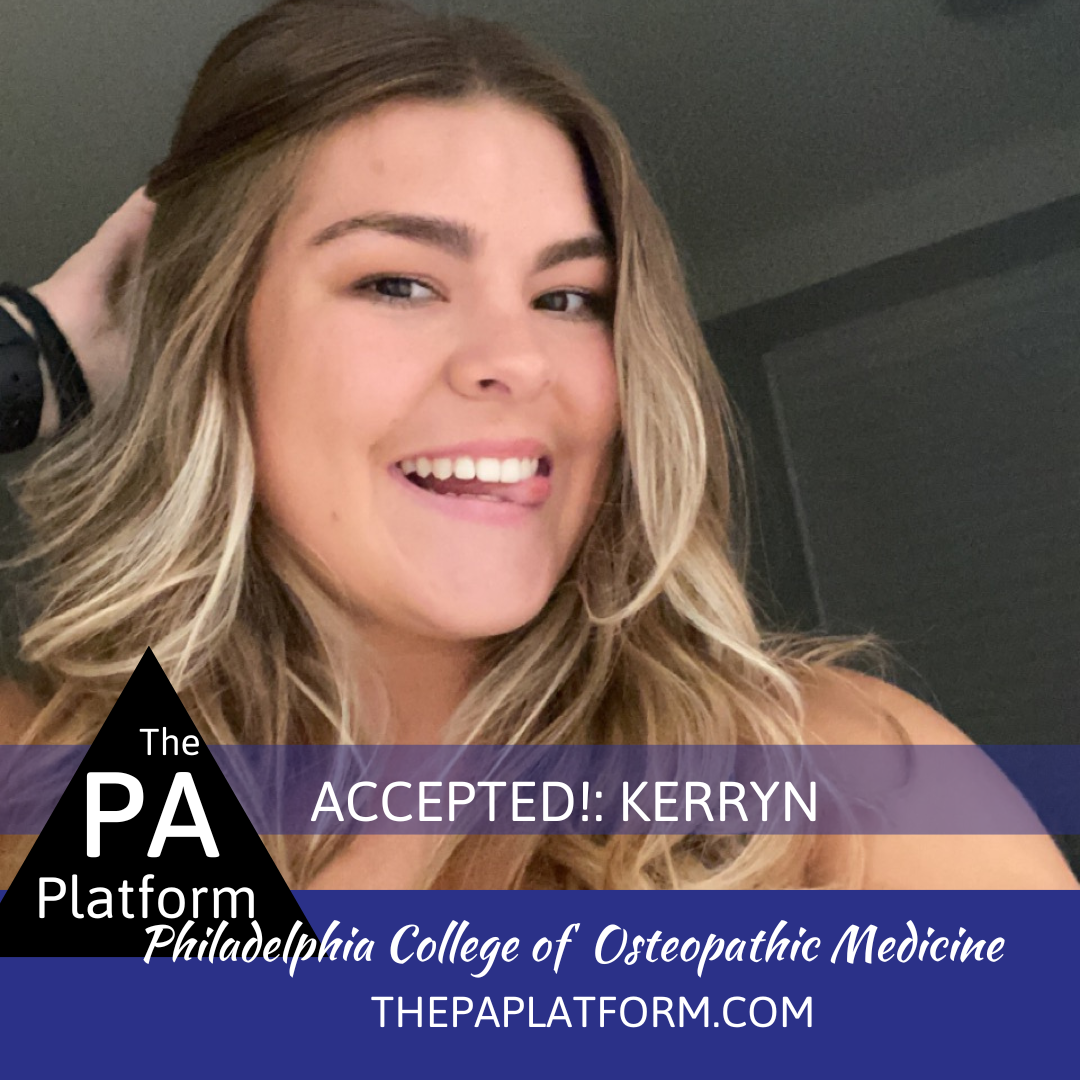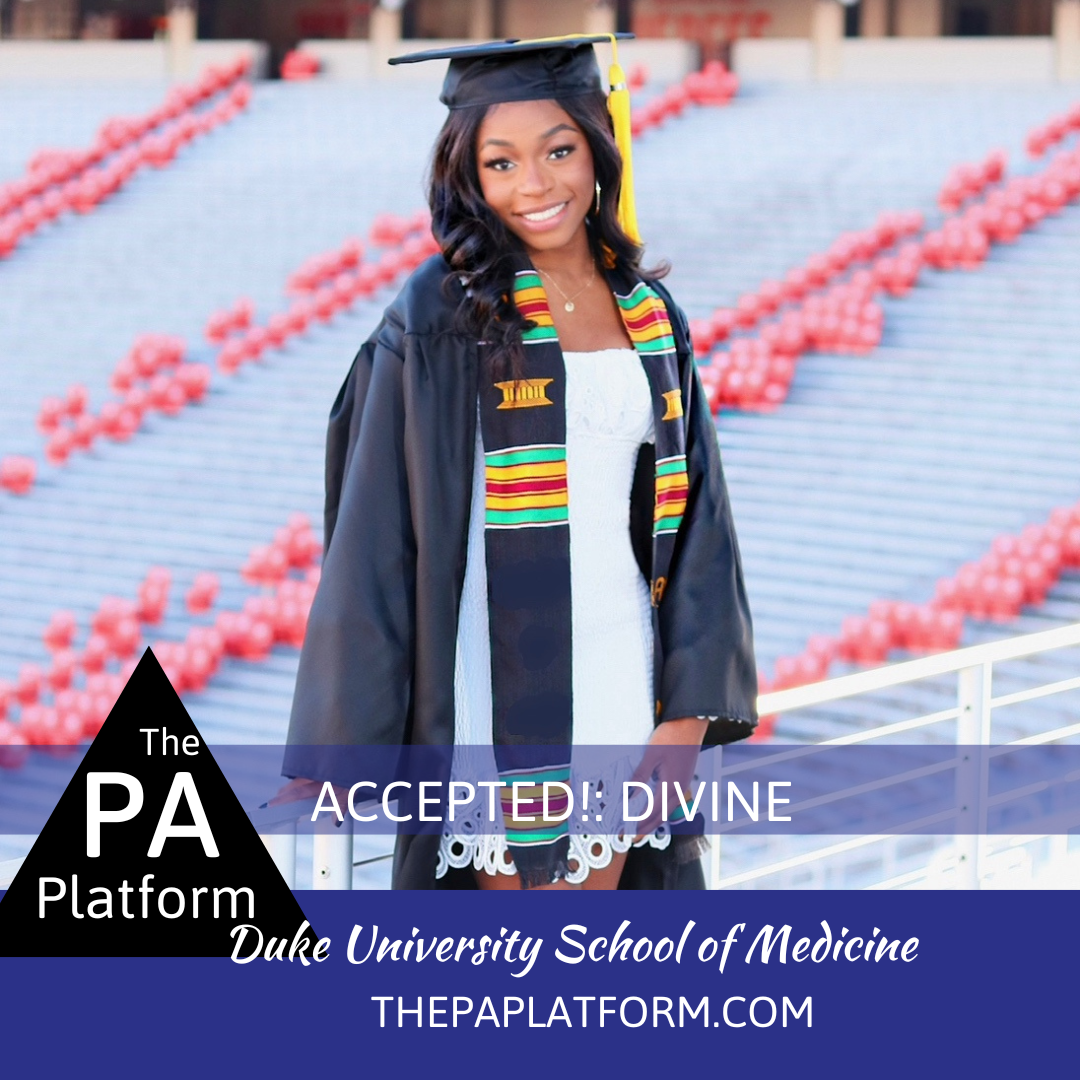Sponsored by Jacksonville University
One of the best parts of working in medicine is collaborating with other healthcare professionals to provide the best patient care possible! As future medical professionals, we often have the same end goal - helping people. It sounds cliche, but medicine is a great way to achieve this goal while improving the quality of life for many. Becoming a physician assistant is a great choice, but it’s not the only allied health option that allows you to get one-on-one time with patients. I’ve teamed up with Jacksonville University’s (JU) Master of Science in Respiratory Care (MSRC) program to share some insights into the respiratory therapist (RT) healthcare career track. The goal of The PA Platform has always been to provide exposure to possible healthcare career paths; respiratory therapy is a great option for anyone who wants to make an impact on patients (in a way just as important as breathing)!
What is a Respiratory Therapist?
A respiratory therapist (RT) is a healthcare practitioner with advanced knowledge of the cardiopulmonary system: how it works, the diseases that affect this system, how to treat these diseases, and more. If you’ve been in the hospital for any reason, you’ve likely seen an RT at work without knowing it. Respiratory therapists perform a range of duties including providing oxygen and aerosol therapy (breathing treatments), performing physical exams, and managing mechanical ventilators and other life support machines.
“Intubation” has been a popular word over the last few years, but you may have not realized that in many cases, RTs are the personnel responsible for these important procedures. Respiratory therapists are expected to display high levels of critical thinking, interpersonal communication, and clinical assessment skills as they oftentimes work in high-pressure situations.
Where can Respiratory Therapists work?
Respiratory therapists can work in a variety of locations including outpatient settings such as home care, physicians’ offices, clinical research facilities, pulmonary rehab, or polysomnography labs (sleep lab) or in all extents of the hospital. Some of the areas at a hospital where you’ll see an RT are the emergency department, floor therapy, intensive care units, pre-operative and post-operative units, and neonatal and pediatric units. When I had my daughter, I remember the RTs were in the corner ready to go in case of an emergency during my C-section. There was a respiratory therapist for both me and my daughter and I spotted the tiniest endotracheal tube for babies, which was not much bigger than a straw, that, thankfully, we didn’t need.
Respiratory therapists can also enjoy the flexibility of becoming travel therapists or seek excitement by becoming transport therapists. There are also academic and leadership opportunities, and having an advanced degree like a master’s in respiratory therapy opens more doors for growth; non-practicing RTs can become simulation educators, teachers in higher education institutions, or even ventilation specialists. A graduate-level degree in respiratory care allows an individual's options to go beyond the emergency room or critical care units.
How to Become a Respiratory Therapist?
Much like a physician assistant, RTs are in high demand. The profession is expected to see a 23% increase in job growth by 2030, per the U.S. Bureau of Labor and Statistics. Jacksonville University is one of only nine programs in the country that offer a graduate program in respiratory care. While there are associate and bachelor respiratory therapy programs, a graduate degree is becoming the future hiring standard for respiratory therapists.
The MSRC program at Jacksonville University shares similar admissions requirements as PA school due to its competitive nature; you will need to have completed your bachelor’s degree prior to admission, write a statement of intent, obtain a letter of recommendation, and interview for the program. Like PA school, you can receive your bachelor’s in any desired area that fulfills the required prerequisites (many are shared with PA school as well). Prerequisite classes include algebra, chemistry, human anatomy and physiology, microbiology, physics, psychology, and statistics.
What can you expect from a Respiratory Care program?
Using the Jacksonville University MSRC program as an example, the program provides students with both the knowledge and skillset to ensure that graduates are prepared for a successful career in respiratory therapy. Jacksonville University has partnered with Rush University, a Chicago-based university widely known for its success in credentialing certified respiratory therapists and registered respiratory therapists, to create a program that combines high-quality academic learning with hands-on clinical placement in local top-tier health systems.
Last week on The Pre-PA Club Podcast, JU MSRC Program Director, Amanda Dexter, emphasized how evidence-based medicine is used to develop and implement patient care plans specific to the cardiopulmonary system. Programs like Jacksonville University’s MSRC teach patient education on acute and chronic lung diseases, learn how to run disease management programs for specific diseases, and prepare graduates for the careers ahead of them. Like any other allied health program, you want to feel confident in your knowledge and training, especially when performing life-saving procedures.
This two-year program is broken up into didactic and clinical sections, another similarity to PA programs. In the first year of an RT program, students can expect to learn the fundamentals of identifying, preventing, and treating acute and chronic cardiopulmonary dysfunctions. By going in-depth into the anatomy and physiology of the cardiopulmonary system and the pathophysiology of respiratory disturbances and diseases, you’ll get a solid understanding of how to help future patients. PA programs typically only spend a few weeks on these specific topics.
First-year curricular content for respiratory therapy includes pharmacology, gas laws/theorems, principles of mechanical ventilation (and maintenance), how to identify and correct acid-base disruptions, and fundamentals of performing a full respiratory assessment in the Jacksonville University Healthcare Simulation Center. PA school barely touches on this information, but this is the mainstay of respiratory therapy practice. The foundation of your education will continue to build in the second year during clinical rotations.
The second year of the program focuses on the development of strong clinical skills and prepares graduates for national board exams and state licensure. Clinicals are the fun part of education – you get to apply the knowledge and practices you’ve gained while learning from experienced practitioners. Students will become familiar with administering oxygen or aerosol therapy, obtaining blood gas samples for analysis, performing secretion removal maneuvers, as well as initiating, maintaining, and removing mechanical ventilation or artificial airways. Lots of hands-on experience!
I hope this gives you a good inside look into the respiratory therapy profession and maybe a new option to put on your list of career choices. If you have any questions or are seeking guidance into the field, please reach out to Jacksonville University at graduateadmissions@ju.edu, and any RTs you know!










